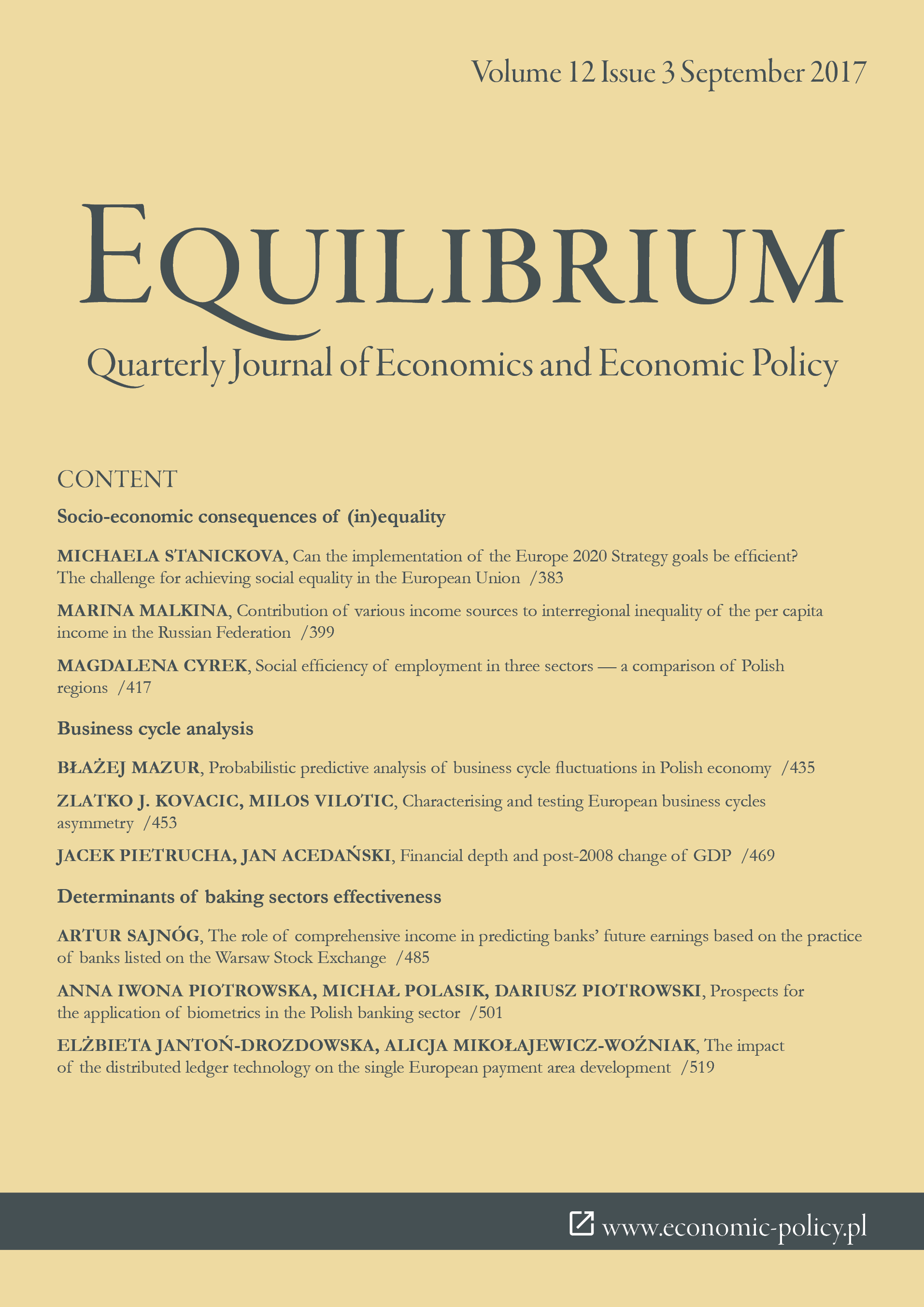Contribution of various income sources to interregional inequality of the per capita income in the Russian Federation
Contribution of various income sources to interregional inequality of the per capita income in the Russian Federation
Author(s): Rogneda I. VasilyevaSubject(s): Geography, Regional studies, National Economy, Economic policy, Evaluation research, Transformation Period (1990 - 2010), Present Times (2010 - today), Socio-Economic Research
Published by: Instytut Badań Gospodarczych
Keywords: personal income; sources; interregional inequality; decomposition;
Summary/Abstract: The reduction lately observed in interregional differences in the per capita income in Russia requires some clarification of the reasons. One possible way to do this could be decomposition of interregional inequality in personal incomes by income sources, i.e.: wages and salaries, property incomes, social transfers, entrepreneurship incomes and revenues from informal activities. Purpose of the article: The objective of this research is identification of the character, direction and degree of influence of various income sources on interregional inequality and convergence of Russian regions by their per capita income in 2001–2014. Methods: We brought personal incomes in the regions to a comparable level using the relative cost of fixed consumer basket. Then we applied the population-weighted Gini coefficient, coefficient of variation, and the Theil index to measure the interregional inequality in personal incomes in dynamics. Further usage of various techniques of inequality decomposition allowed us to evaluate contribution of different types of income to the Russian regions’ convergence across time. Findings & Value added: Various types of income demonstrated different paths of interregional inequality, changes in interaction and in the shares of total income, which altogether influenced spatial inequality. Wages and salaries showed the largest and growing impact on inequality. The contribution of informal incomes to the overall inequality was the second largest, but diminishing and negatively interacting with other unevenly distributed types of income; thereby they provided more than half of the total interregional convergence. Entrepreneurship incomes revealed slightly decreasing influence on inequality, which was mainly neutralized by their reduction in the share of total income. Social transfers demonstrated the largest smoothing effect, however, their contribution to convergence was exhausted. Property incomes evidenced the greatest enhancing impact on inequality especially in the period of recovery. Additionally, informal incomes played the role of substitutes for formal incomes providing self-replicating mechanisms for reducing inequality in Russia.
Journal: Equilibrium. Quarterly Journal of Economics and Economic Policy
- Issue Year: 12/2017
- Issue No: 3
- Page Range: 399-416
- Page Count: 18
- Language: English

